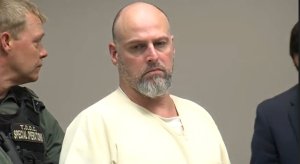Tennessee’s corrections chief said Tuesday that it is “worth looking at” adding video surveillance cameras at residences located at a state prison following a corrections administrator’s killing earlier this year.
Tennessee Department of Correction Commissioner Tony Parker answered questions from members of the General Assembly’s Joint Corrections Subcommittee in Nashville. Lawmakers and prison officials also discussed a report by the American Correctional Association that reviewed policies and procedures related to the minimum security status of West Tennessee State Penitentiary inmate Curtis Ray Watson.
The assault and murder of corrections administrator Debra Johnson on Aug. 7 has led to questions in court hearings about security at the prison, located about 55 miles (89 kilometers) north of Memphis. Parker and assistant corrections commissioner Lee Dotson became emotional as Parker spoke about Johnson, whom Parker called an extraordinary woman “who treated everyone she encountered with dignity and respect.”

Authorities said Watson was on regular lawn care duties when he sexually assaulted and killed Johnson at her home on prison grounds that morning.
A golf cart Watson was using was seen at Johnson’s home before her body was found, according to testimony by corrections officers during a probable cause hearing in November. A medical examiner’s report said Johnson, 64, had been strangled.
Johnson had been a state employee for 38 years and oversaw wardens at several area prisons.
Watson escaped on a tractor, which was left in a cotton field about 2 miles (3 kilometers) from the prison, authorities said. Watson was found four days later after an intense manhunt.
Watson, 44, has been serving a 15-year sentence for especially aggravated kidnapping. He also had been previously convicted of aggravated child abuse. Watson had access to a tractor and a golf cart as a “trusty” — an inmate granted special privileges as a trustworthy person, authorities said.
Watson’s case will be reviewed by a grand jury, which will decide whether to formally indict Watson on sexual assault, murder and escape charges. He has not entered a plea.

Gov. Bill Lee has said that Tennessee prison officials followed protocol prior to Watson’s escape. But the Republican governor added that his administration wanted to examine Department of Correction protocols involved in the escape.
Tennessee’s Legislature had asked the American Correctional Association, a nonprofit accrediting body for the prison industry, to study policies used to place Watson in minimum direct custody.
Watson had no history of sexual abuse or sexual assault and he required no mental health services, the report said. Watson had been housed in the minimum security annex at the prison, located near Henning.
Corrections department’s policies were followed in relation to the “movement and placement of inmate Watson in various housing units, programs, security and custody levels,” the report said.
The report also said policies and procedures complied with “good correctional practice.”
The report, however, does not address the actions of corrections officers and prison officials during the escape.
Watson’s defense attorneys questioned corrections officers at the November court hearing about the use of prison video surveillance. State Rep. Jason Powell asked Parker at Tuesday’s committee hearing about having video cameras at penitentiary residences to improve security. Wardens and other officials have homes on Tennessee prison properties.
Parker said there are some areas covered by video.
“We do not currently have video surveillance at every residence on the property,” Parker said. “But I do think it’s something worth looking at.”
A capital improvement project is addressing video upgrades, Dotson told lawmakers.
Powell also asked whether it was unusual for Watson to be at a prison residence with his golf cart. It was not uncommon for a trusty inmate to visit a prison residence to perform work, Parker said.
Officials have decided to ensure that offenders will be directly supervised when they are working at the prison’s residences, Parker said.

















